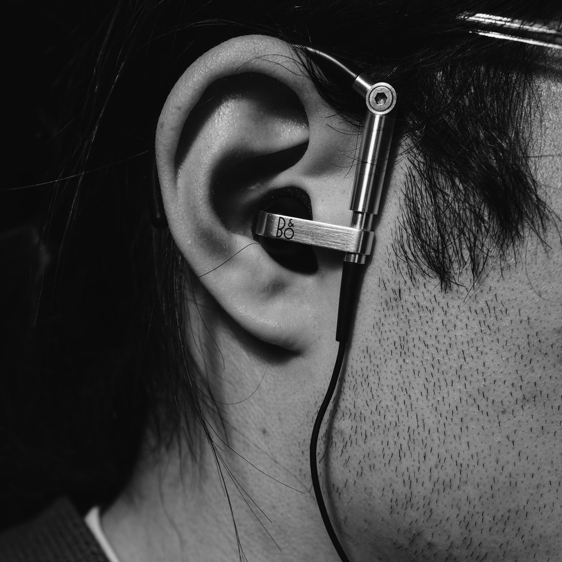 Stephen Geller Katz LCSW-R
Stephen Geller Katz LCSW-R
Misophonia Cognitive Retraining Therapy
 Stephen Geller Katz LCSW-R
Stephen Geller Katz LCSW-RMisophonia Cognitive Retraining Therapy
Misophonia Cognitive Retraining Therapy, as featured on the MTV True Life episode: “I Have Misophonia” premiering Friday, December 16th, 7:00 PM EST. See Clip >
|
|
|
| Moderate to severe anxiety triggered by chewing sounds, including: | ||
|
|
|
You may also be affected by visual stimuli, such as repetitive foot or body movements, fidgeting or movement you observe out of the corners of their eyes. Intense anxiety, rage and avoidant behavior may develop as a result of misophonia.
 * Do you feel your family and friends don’t understand how much you suffer?
* Do you feel your family and friends don’t understand how much you suffer?
* Do you often feel you can just suffer through a social event where there is eating present only to find that you must “escape” before you have a panic attack?
* Do you find that some people are at first understanding and make some efforts not to make the triggering sounds in front of you, but soon forget and constantly have to be reminded, causing you to feel angry, anxious and depressed?
* Are you avoiding social activities that you enjoy because of the misophonia?
* Are you fearful of losing your job and/or is the misophonia effecting your job performance?
You may be a candidate for Misophonia Cognitive Retraining Therapy, or MCRT.
Stephen Geller Katz, LCSW-R, with over 20 years of clinical experience, a New York University graduate, developed Misophonia Cognitive Retraining Therapy and founded Misophonia Cognitive Center™ in response to the growing number of people with Misophonia coming to his private practice from audiologists and ENTs. He discovered that by helping people to retrain and reinterpret the thoughts around their Misophonia, anxiety and depression symptoms began to improve. But even more important so did the Misophonic trigger response.
Is there a relationship between Misophonia and hyperacusis? These two conditions are often misunderstood and frequently misdiagnosed. Although they share some similarities, they are distinct conditions that require different treatment approaches. In this blog post, we will explore the relationship between these 2 conditions and discuss the importance of accurate diagnosis and effective treatment.

Misophonia is a condition that involves a strong emotional response to specific sounds, known as trigger sounds. These sounds can cause feelings of anger, disgust, and anxiety, and can significantly impact daily life. Hyperacusis, on the other hand, is a condition that involves heightened sensitivity to sound, which can lead to discomfort, pain, and even fear of certain sounds.
While these 2 conditions share some similarities, they are distinct conditions that require different treatment approaches. Misophonia involves a specific emotional response to trigger sounds, while hyperacusis involves an abnormal sensitivity to sound in general.
While misophonia and hyperacusis are distinct conditions, they can sometimes occur together. In some cases, individuals with misophonia may also have hyperacusis, which can make trigger sounds even more difficult to manage.
Additionally, they can both be associated with other conditions, such as anxiety and depression. It’s important to understand the relationship between these conditions and their potential impact on overall well-being and quality of life.
Effective treatment for misophonia and hyperacusis requires accurate diagnosis and a comprehensive treatment plan that addresses the unique needs of each individual. Treatment options may include:
CBT is a form of talk therapy that can be helpful for individuals with misophonia and hyperacusis. This type of therapy involves identifying and changing negative thought patterns and behaviors, which can improve overall well-being and reduce their impact on daily life.
CRT is a form of therapy that involves retraining the brain to respond differently to trigger sounds. This type of therapy can be helpful for individuals with misophonia and hyperacusis, as it can reduce the emotional impact of trigger sounds and improve overall well-being.
Sound therapy involves the use of specific sounds or frequencies to reduce the impact of misophonia and hyperacusis. This type of therapy can be helpful for individuals with hyperacusis, as it can help desensitize the ears to certain sounds.

Misophonia and hyperacusis are two conditions that can significantly impact daily life, but with accurate diagnosis and effective treatment, it is possible to manage trigger sounds and improve overall well-being. While they are each distinct conditions, they can sometimes occur together, which can make effective treatment even more important.
If you or a loved one is struggling with misophonia, hyperacusis, or both, Stephen Katz and the MISOPHONIA COGNITIVE CENTER™ can provide effective treatment and support. Our online Cognitive Retraining Therapy (CRT) sessions and other evidence-based therapies can help you manage trigger sounds and improve overall well-being.
Don’t let misophonia and hyperacusis control your life. Contact MISOPHONIA COGNITIVE CENTER™ today at 646-585-2251 to learn more about our services and schedule an appointment with Dr. Katz.
MISOPHONIA COGNITIVE CENTER ™
Stephen Geller Katz LCSW-R
19 West 34th Street
Penthouse Floor
New York, NY 10001
646-585-2251
What is Hyperacusis, it’s symptoms & treatment? Hyperacusis is a hearing-related in which you find it difficult to listen to everyday sounds. Experts also call the condition sensitivity to noise or sound. If you are suffering from this condition, you will find it challenging to tolerate loud sounds, but people you’re with will not notice it.
This is a rare condition. Around 1 out of 50,000 people suffer from hyperacusis. Many people with this condition also suffer from tinnitus, a condition due to which one feels ringing or buzzing in the ear. This is a hearing disorder. However, many people with this condition may have normal hearing as well.

(Source)
Hyperacusis has many symptoms that can be harmful to you and affect your daily life. These symptoms include:
Some of the sounds that you might think to be louder than they actually are:
Various people who develop severe symptoms might experience a loss in balance. Some may feel slightly bothered because of such sounds while others have seizures.
As you might know, your ears can detect vibrations. If you have hyperacusis, your brain gets confused by certain vibrations. If you get the same signals to somewhere else, your brain reacts differently to them. So, then you experience discomfort.
Generally, people are not born with hyperacusis. It may usually result from certain health issues or diseases. The most common are:
Something like a single loud gunshot or blast can trigger the condition. Being around loud noise, in many cases, can cause hyperacusis. But being near, loud noises for prolonged periods can eventually lead to a disability as well.
Hyperacusis is divided into two types:
Cochlear is very common. It involves feeling frustration, pain in your ear, and intolerance with everyday sounds. However, in vestibular, you will feel dizziness, nausea, and imbalance while experiencing a particular sound. In both of these types, you will experience stress, anxiety, social isolation, depression, and phonophobia (which are fear of sounds that are normally present in our environment).
Many people confuse recruitment and hyperacusis. However, recruitment is a condition in which you will experience exaggeration in your perception to hear sounds that are present in the frequency range for hearing loss. In recruitment, you will only feel certain noises loudly, but in hyperacusis, every sound will feel loud and uncomfortable. To determine what sensitivity to loud noise you are experiencing, an audiologist who is specialized in these conditions will run the loudness discomfort test.

(Source)
Hyperacusis treatment depends on the reason for this condition. If you are experiencing this condition due to injuries to your ear and brain, the sensitivity to sound may get better without any treatment.
If the condition is improving on its own, you need to visit a doctor for suggestions on sound desensitization. A specialist will work with you and help you learn the ways in which you can treat your sound problems. Through time, you need to work on low sounds that are around you daily, and after a while, you can work on loud sounds and try to adapt.
For most of the day, you will be wearing a device on your ear, either the affected one or both ears. This device will convert the sound to static, so you do not have to worry, as it won’t bother or cause pain. To benefit from therapy, you need to take it for at least six months or a year.
Other treatments for hyperacusis are not well-researched for experts to know if they are really helpful for you or not. These treatments involve relaxation, exercise, and acupuncture. People have found other available options to be effective, such as AIT or auditory integration therapy, which helps in treating autism. This treatment involves hearing music on various levels for some time on a daily basis. To manage the stress that this condition causes, your doctor may prescribe medication.
As experts still do not know the reason behind hyperacusis, you may be experiencing the condition because of hearing damage from excessive exposure to noise. If you want to reduce symptoms and any other hearing-related condition, you can:
This condition can be irritating and will affect your daily activities. If you have been experiencing this condition for over 3 to 4 days, visit a professional. Kindly contact our clinic center for treatment at 646-585-2251 or find more information on our website.